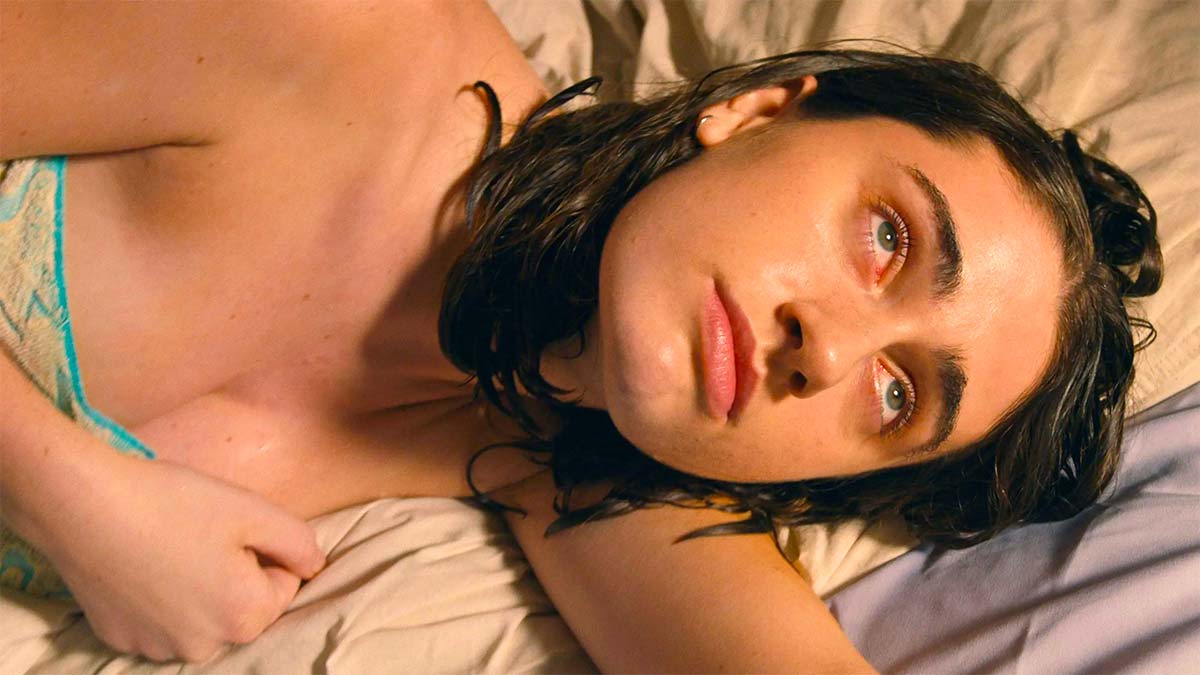Rachel Sennott is ideally cast in the leading role of Ally Pankiw’s “I Used to Be Funny” because this is a character who sort of can’t help but make you laugh, even without trying, even in tremendously difficult situations. Her name is Sam, and she’s a stand-up comedienne (“Like a comedian, but a girl!” she explains, cheerfully), and you see why. The bone-dry wit and killer-diller timing Sennott displayed in “Shiva Baby” and “Bodies Bodies Bodies” means that even her littlest throwaway lines and deliveries are giggle-worthy (“I’m gonna go lay down… in my towel” is not a funny line, but she gets a laugh with it), while her insults land like body blows (“I feel like his hair somehow got more incel-y”).
READ MORE: SXSW 2023 Preview: 25 Must-See Film & TV Projects To Watch
It’s impossible to overstate the importance of that quality, that offhanded wittiness, to what Pankiw sets out to do because the title is loaded: “I Used to Be Funny” is filled with amusing moments, but it is very much a drama, about a horrible thing that happened to someone who, side note, used to be a comedian, and does not find much to laugh about anymore. She lives in Toronto with a couple of other comics, and the scenes of them just hanging out and talking shop have a lived-in authenticity (“I feel like your youth minister stuff could still work?”). She’s trying to write and trying to work and trying to get her life back on track, but she can’t go on stage anymore, and eventually, we find out why.
One must emphasize the eventually part because Pankiw’s screenplay conceals the exact events that shipwrecked her life and made her a social media cause celebre until very late in the picture — too late, perhaps, at least for some viewers (and maybe for this one). It’s hinted, as these things often are, in coded language and inexplicable incidents; she’s captivated by a TV news report of Brooke (Olga Petser), a 14-year-old runaway, missing for four days, who soon turns up at her door to throw things and call Sam a liar. Her roommate cautions her not to get sucked in — “You’re not getting paid to worry about her anymore” — amid mysterious mentions of what she’s “been through”; the film keeps circling what that is, dropping clues but not coming out with it.
In flashbacks, we get some background into who Brooke is and what this all means. Sam’s day job is nannying, and she cared for Brooke, initially a confused 12-year-old whose parents were going through a rough breakup. (Jason Jones, playing it very straight, is quite good as the dad.) Because Brooke was right on the edge of needing child care at all, her relationship with Sam is more like a sibling one, which is part of why their break seems so loaded; whatever happened, it ended badly between the two of them, a drama underscored by their easy rapport earlier in the relationship.
We also see Sam on stage before ~everything that happened~, and those scenes scan; her level of relative fame makes sense, because she’s pretty funny, but not some kind of secret superstar. She’s reasonably successful and relatively happy — we see her in bed with her boyfriend, being jokey and sexy, in sharp contrast with their later, uncomfortable interactions. (“I just can’t be around you, ok?” she explains, in a scene that pointedly gets at the collateral damage of these experiences. “It just makes me feel like shit to be around the people who were there.”)
The flashbacks are reasonably well-integrated, though it takes a few scenes to hook into what they’re doing and where we are, and some of the stylistic devices to signal them are a little shopworn (there are copious echoing voices haunting the soundtrack). But the construction isn’t entirely effective. It ends up unwinding like a thriller, carefully hiding not a killer, but a secret, a device that borders on deception and tips into that territory — particularly near the end, when the details they’ve been withholding are released as easy exposition dumps in flat, pro forma courtroom scenes.
It’s not that it feels like a gimmick; victims of trauma often circle their memories in triggered flashes, and it’s easy to see how Pankiw is attempting to replicate that experience in a subjective way. And her insightful screenplay not only gets the very specific way people talk to each other in the aftermath of such a trauma but how its victims can take on A Project with single-minded determination, in order to take their minds off of everything (here, it’s Sam’s mission to track down Brooke in the skeezy teen underworld, to which her roommate warns, “Don’t… think about ‘Euphoria‘”). The reveal of Brooke’s anger, and the source of it, is genuinely well-executed — good writing, good acting — even if the double-tap feel-good ending is too, too much (pick one and go with it, for goodness’ sake).
Above all, “I Used to Be Funny” is a fine showcase for Sennott’s considerable gifts. The comic material, as noted, is unsurprising; she’s developing the camera sense and timing of a genuine movie star. The revelation here is her dramatic work; her breakdowns and spirals are quite credible, and occasionally heartbreaking, but her most impressive scenes are the quieter ones, in which we sense her trying, desperately, not to talk about things — or, even tricker, to seem like she doesn’t need to. It’s a wonderful performance, so good that it pulls the picture around it through its rougher patches. [B-]
Follow along for all our reviews and coverage of the 2023 SXSW Film & Television Festival.





